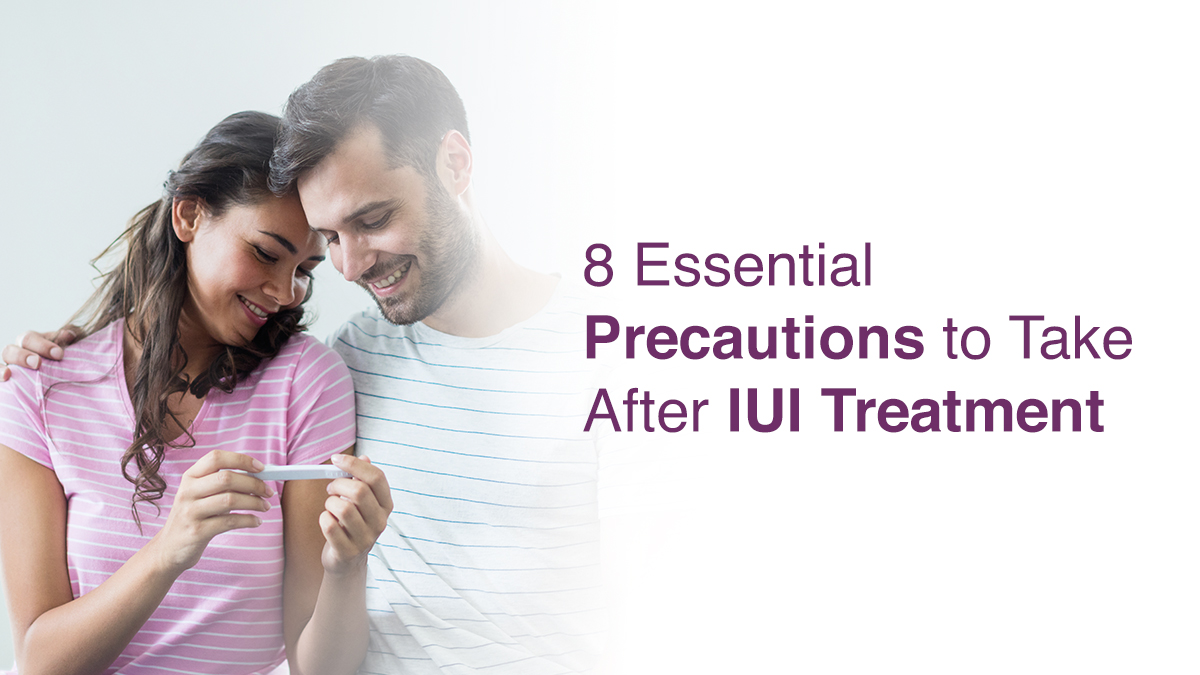While some people may have little trouble getting pregnant, others may find it difficult. The inability to conceive, the absence of a spouse, or underlying medical disorders can all be barriers to childbearing. However, with the aid of contemporary medicine and procedures like intrauterine insemination (IUIs), such obstacles can potentially be overcome.
What is an IUI Treatment and How Does it Work?
Intrauterine insemination (IUI) is a medical process designed to treat infertility. It is also referred to as artificial insemination, donor insemination, and alternative insemination. IUI helps the sperm get closer to your egg by injecting sperm cells straight into your uterus around the time of ovulation. This makes it easier to fertilise your egg by reducing the amount of time and distance sperm must travel.
You may take ovulation-stimulating fertility medications prior to the insemination operation. Semen is taken from a donor or your spouse. A concentrated quantity of healthy sperm is extracted from the semen by a procedure known as ‘sperm washing’. The sperm are then directly placed into your uterus by the physician. If your egg is fertilised by sperm and implants in the lining of your uterus, you become pregnant.
IUI is a low-tech, straightforward technique that can be less costly than other reproductive treatments. IUI raises your chances of getting pregnant, but since every person’s body is unique, there is no assurance that it will be successful.
8 Essential Precautions to Take After IUI Treatment
IUI is not foolproof. Many people have had to go through numerous cycles before achieving success. It is advisable to take some precautions after an IUI treatment to ensure that it has a better chance of being successful. Let’s take a look at some of the dos and don’ts after an IUI procedure:
Rest and Take It Easy
It’s crucial to rest and give your body time to heal after an IUI treatment. If it’s possible, spend the rest of the day sleeping and refrain from heavy lifting or performing other demanding activities. It’s okay to move gently, but make sure your body relaxes during this crucial period.
Stay Hydrated and Eat a Balanced Diet
It is important to have a balanced diet full of fruits, vegetables, lean protein, and healthy grains after IUI as well as to stay hydrated by drinking a lot of water. Be sure to avoid processed foods, too much coffee, alcohol, and fish high in mercury, such as swordfish and tuna after an IUI. Eat less fried meals and sugary snacks because they can throw off your hormone balance. Aim for meals that are high in nutrients and conducive to conception.
Take Prescribed Medications as Directed
Medications often come up in the post-treatment stage of the conception process after IUI is performed to improve efficacy and to raise the chance for success in the process. It is, therefore, advisable not to miss out on timely medication intake. In a similar vein, it is best to speak with the concerned physician with regard to the medications, particularly those provided in conjunction with the treatment, that need to be avoided following an IUI.
Avoid Smoking, Alcohol, and Caffeine
Avoid excessive caffeine, alcohol, and smoking after IUI, as they can harm implantation and fertility in general. Alcohol and excessive caffeine use may disrupt hormonal balance while smoking lowers oxygen flow and degrades egg quality. Make sure to live a healthy lifestyle, as it can help your body during this important period.
Avoid Intercourse for a Few Days
It is recommended not to have sexual intercourse for at least three days following IUI to minimize uterine cramping and give time for the procedure to take effect. To optimize the chance for success, maintain calm and allow your body to settle into this crucial period.
Avoid Stress
What is one of the things to not do after an IUI? Take undue stress! Even in the best of circumstances, stress can result in serious hormone abnormalities. In addition to lowering the likelihood of conception, hormonal imbalances during the post-IUI phase might have a lasting impact on general health. During the time following an IUI, it is vital to remain calm and have a good outlook.
Avoid Hot Baths, Saunas, and Hot Tubs
Steer clear of hot tubs, saunas, and hot baths after an IUI because they can damage early embryo development and interfere with implantation. Blood flow to the uterus may be impacted by high temperatures. Instead, take warm showers and concentrate on maintaining a steady body temperature to promote a healthy environment during conception.
Schedule and Attend Follow-Up Appointments
Following the doctor’s orders, it is important to continue with follow-up visits after an IUI. Follow-up appointments will help track your progress towards implanting and assist if any problems arise. Blood tests or ultrasounds done on time will confirm or deny the pregnancy and proceed with the next course of action. Consistent follow-up appointments may yield maximum results.
When to Seek Medical Advice?
After an IUI, if you have severe abdominal discomfort, heavy bleeding, fever, or unusual discharge, you should consult a doctor since these symptoms could be signs of infection or ovarian hyperstimulation syndrome (OHSS). Additionally, if you have concerns about symptoms or experience ongoing discomfort, speak with your doctor. Timely attention guarantees appropriate care and mental tranquility.
Conclusion
The likelihood of success after an IUI might increase by taking the right precautions and paying heed to your doctor’s recommendations. Know more about IUI and their after-care as well as side effects from our fertility experts at Oasis Fertility Clinic near you immediately. You can also contact us at 1800-3001-1000 or use our live chat facility to avail more information.

